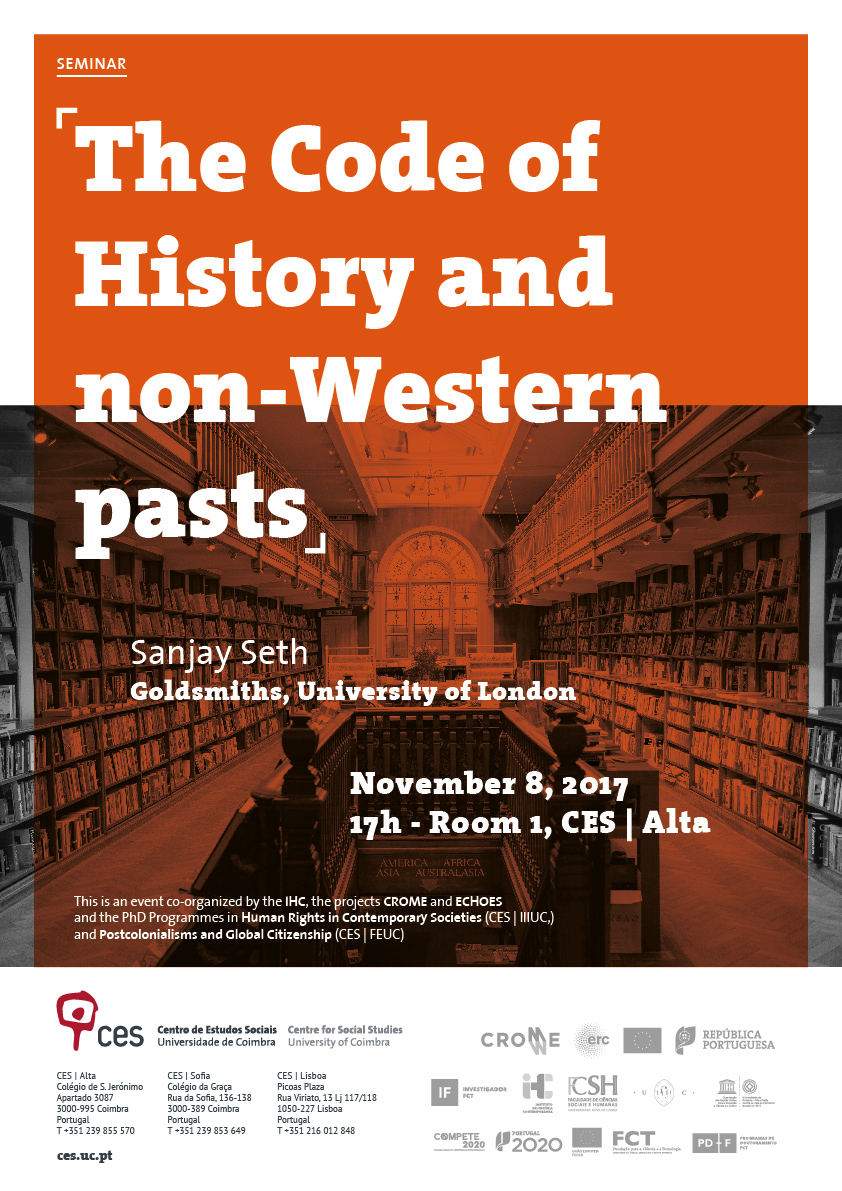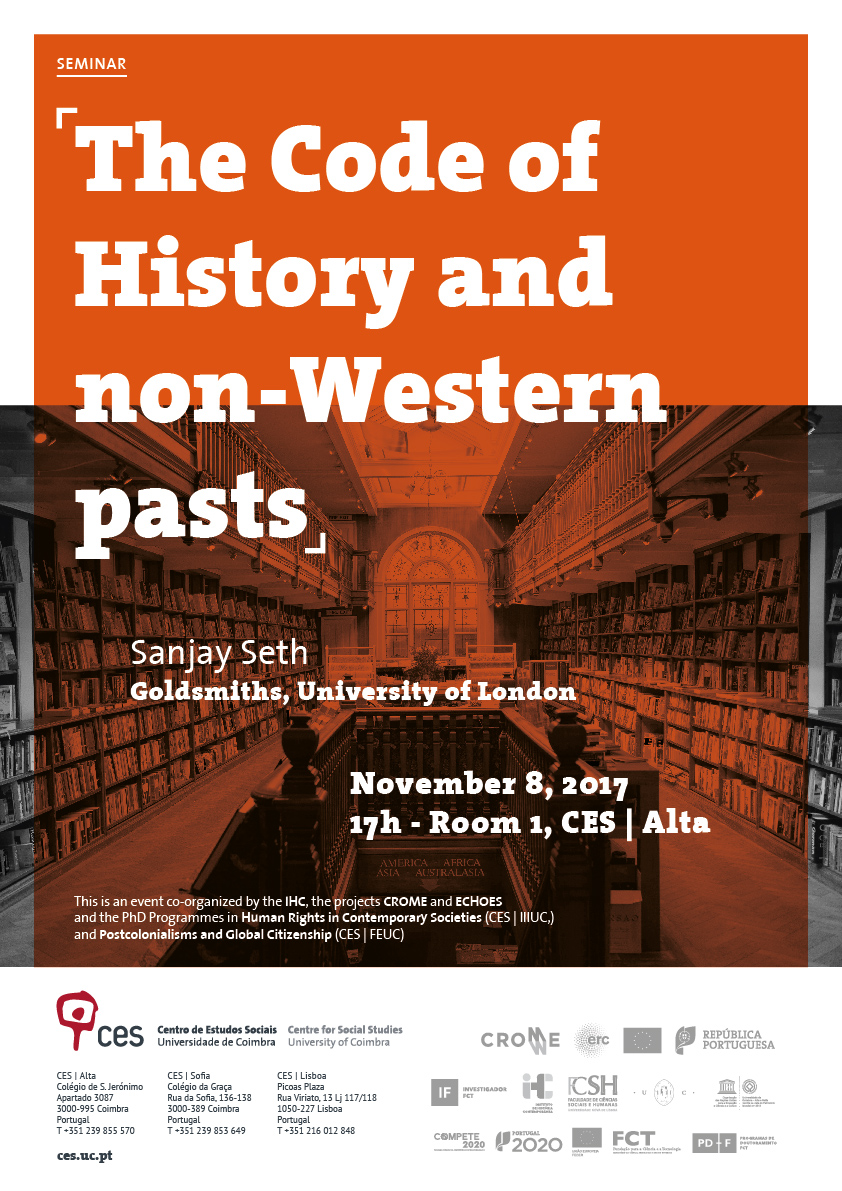Seminário
The Code of History and non-Western pasts
Sanjay Seth (Goldsmiths, University of London)
8 de novembro de 2017, 17h00
Sala 1, CES | Alta
Abstract
This paper argues that history-writing is not the recreation of a past that is always-already there, lying mute and waiting for the historian to give it voice, but is instead a code or genre or technology, one which constructs the past in ways that make it amenable to representation through the code of history. Enquiring into the elements which constitute the code of history, and engaging with the history of music, art and science along the way, the paper concludes by considering whether this code is adequate to representing non-Western pasts.
Bio note
After completing his education in Sydney and Canberra, Sanjay Seth held positions at Sydney University and La Trobe University (Melbourne), as well as a Fellowship at Tokyo University. He moved to Goldsmiths in 2007, to take up the Chair in Politics.
Sanjay has published in the fields of modern Indian history, political and social theory, postcolonial theory and international relations. He is particularly interested in how modern European ideologies, and modern Western knowledge more generally, ‘travelled’ to the non-Western world- and what effects this had both on the non-Western world, and on modern, Western knowledge. His current work is focused on whether the presumptions that inform our modern knowledge are ‘universal’, meaning adequate to all times and places- as is usually supposed- or whether they are in fact parochial, presumptions that are specifically modern and Western but that illegitimately pass themselves off as universal. He often uses his Indian archive to raise and pursue these broad social, cultural and epistemological questions.
This is an event co-organized by the IHC, the projects CROME and ECHOES and the PhD Programmes in Human Rights in Contemporary Societies (CES | IIIUC,) and Postcolonialisms and Global Citizenship (CES | FEUC)



